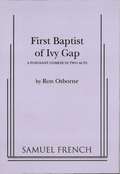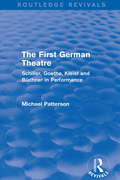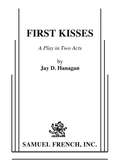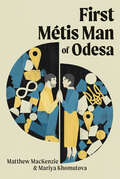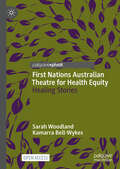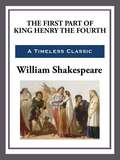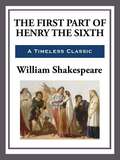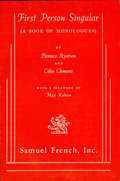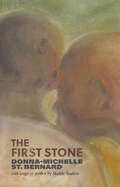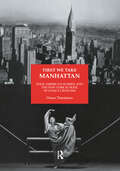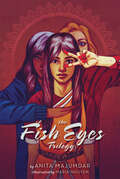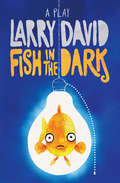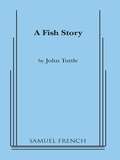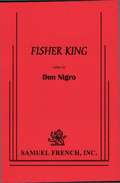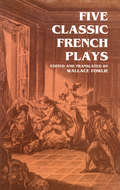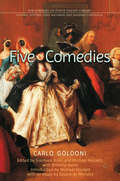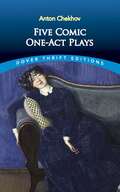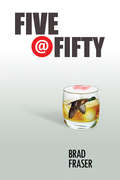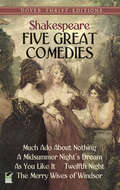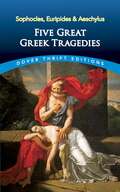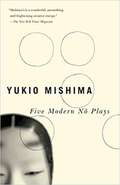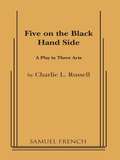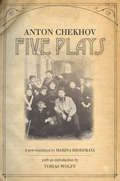- Table View
- List View
First Baptist of Ivy Gap
by Ron OsborneComedy / 6f / During WWII, six women gather at the church to roll bandages and plan the church's 75th anniversary. Overseeing things is Edith, the pastor's wise-cracking wife who dispenses Red Cross smocks and witty repartee to Luby, whose son is fighting in the Pacific; Mae Ellen, the church's rebellious organist who wants to quit but hasn't the courage; Olene, who dreams of a career in Hollywood; Sammy, a shy newcomer with a secret; and Vera, an influential Baptist with a secret of her own. When Luby learns her son has been wounded, she confounds the others by blaming the vulnerable Sammy. Twenty-five years later, our "First Baptist Six" reunite. Back to reconcile with Luby - whose son died of his wounds - is Sammy, whose own son is now in Vietnam; and Olene, whose flashy show business career will set the town on its ear. There to welcome them are Vera, her secret still safe; Mae Ellen, still rebellious and still looking for an escape; and Edith, whose biggest challenge isn't the church's upcoming centennial but revelations that shake relationships formed over a quarter of a century. With humor and pathos, these six very different women find comfort, forgiveness and redemption in each other. Winner of multiple playwriting awards.
The First Frame
by Pannill CampIn the late eighteenth century, a movement to transform France's theatre architecture united the nation. Playwrights, philosophers, and powerful agents including King Louis XV rejected the modified structures that had housed the plays of Racine and Molière, and debated which playhouse form should support the future of French stagecraft. In The First Frame, Pannill Camp argues that these reforms helped to lay down the theoretical and practical foundations of modern theatre space. Examining dramatic theory, architecture, and philosophy, Camp explores how architects, dramatists, and spectators began to see theatre and scientific experimentation as parallel enterprises. During this period of modernisation, physicists began to cite dramatic theory and adopt theatrical staging techniques, while playwrights sought to reveal observable truths of human nature. Camp goes on to show that these reforms had consequences for the way we understand both modern theatrical aesthetics and the production of scientific knowledge in the present day.
The First German Theatre (Routledge Revivals): Schiller, Goethe, Kleist and Büchner in Performance
by Michael PattersonFirst published in 1990. The book surveys of the development of German theatre from a market sideshow into an important element of cultural life and political expression. It examines Schiller as ‘theatre poet’ at Mannheim, Goethe’s work as director of the court theatre at Weimar, and then traces the rapid commercial decline that made it difficult for Kleist and impossible for Büchner to see their plays staged in their own lifetime. Four representative texts are analysed: Schiller’s The Robbers, Goethe’s Iphigenia on Tauris, Kleist’s The Prince of Homburg, and Büchner’s Woyzeck. This title will be of interest to students of theatre and German literature.
First Kisses
by Jay HanaganIn this multi-prize-winning love story, we follow the lives of Mary and John as they grow up and grow old together from the age of eleven to seventy-two. It starts with their first kiss, when John's hamster dies, and continues through all their joys and losses, bad dresses and old girlfriends, and even condoms in their daughter's sock drawer. This piece is a tour de force for two exceptional actors, or a tremendous opportunity to show off your company's extraordinary talent base.
First Métis Man of Odesa
by Matthew MacKenzie Mariya KhomutovaMatt and Masha hit it off during a theatre research trip in Ukraine. At first they seem like opposites: Masha loves the sea, Matt loves mountains. Masha is Ukrainian, Matt is Métis. But the passionate spark ignited between them cannot be denied. Despite the improbabilities of a cross-continental relationship, a few fairy-tale visits overseas solidifies their bond. But when it seems distance could be the only obstacle in their path, a series of extreme circumstances put their commitment to the ultimate test.Based on actual events, First Métis Man of Odesa is the extraordinary true story of a whirlwind romance that withstands a global pandemic, a surprise pregnancy, and the Russian invasion of Ukraine. Transcending the usual tropes of documentary theatre, this heartwarming how-we-got-together tale turns art of the here and now into a catalyst for action and a hopeful ode for a better future.
First Nations Australian Theatre for Health Equity: Healing Stories
by Sarah Woodland Kamarra Bell-WykesILBIJERRI Theatre Company is Australia's longest established First Nations theatre company, producing powerful works for over 30 years. This open access book documents and critically reflects on their Social Impact stream of performances, aimed at health promotion and education around issues that disproportionately affect First Nations communities in Australia. Over the past 16 years, these works have reached over 25,000 audience members across the country. Productions include 'Chopped Liver' (2006-2009), 'Body Armour' (2011-2013) and 'Viral' (2018-2019)—all dealing with Hepatitis C; 'North West of Nowhere' (2014-2016), which deals with sexual health and healthy relationships; and 'Scar Trees' (2019), which addresses family violence. A new work, ‘Aunty Flo’ (2022) addresses menopause for First Nations women; and a pilot project addressing sexual health for First Nations young people—The Score (2022)—represents a new participatory approach to the Social Impact works, which places community members at the centre of the storytelling process. This book documents this important body of work for the first time, examining the impact on audiences and the cultural, aesthetic, and educational implications of a unique form of theatre for health education and promotion.
The First Part of King Henry IV (The New Cambridge Shakespeare)
by Judith Weil William Shakespeare Herbert WeilThis updated edition offers a strongly theatrical perspective on the origins of Shakespeare's The First Part of King Henry IV and the history of its interpretation. The introduction clarifies the play's surprising, de-centred dramatic structure, questioning the dominant assumption that the drama focuses on the education of Prince Hal. It calls attention to the effects of civil war upon a broad range of relationships. Falstaff's unpredictable vitality is explored, together with important contemporary values of honour, friendship, festivity and reformation. Extensive lexical glosses of obscure, ambiguous or archaic meanings make the rich wordplay accessible. The notes also provide a thorough commentary on Shakespeare's transformation of his sources (particularly Holinshed's Chronicles) and suggest alternative stagings. This updated edition contains a new introductory section by Katharine A. Craik, which describes recent stage, film and critical interpretations, and an updated reading list.
The First Part of King Henry the Fourth
by William ShakespeareThis memorable historical drama concerns rebellion against King Henry led by Harry Percy ("Hotspur") and other nobles, complicated by the king's difficulties with his wayward son, Prince Hal. It features a superb blend of courtly intrigue, battlefield action, and low comedy featuring Sir John Falstaff, all expressed in fine blank verse and stirring prose.
The First Part of King Henry the Sixth
by William ShakespeareThe play opens in the aftermath of the death of King Henry V of England (although it was written before Shakespeare's play, Henry V). News reaches England of military setbacks in France, and the scene shifts across the English Channel, to Orleans, where "La Pucelle" (Joan of Arc) is encouraging the Dauphin to resist. She defeats an English army led by Talbot.
First Person Singular
by Florence RyersonSharp Crisp Sketches done in the first person singular tense.
The First Stone
by null Donna-Michelle St. Bernard“No one remembers why it started—What the first stone was for—And so no one can think of a reason to stop.”Can something torn apart by war be put together again? From the award-winning author of Gas Girls and Sound of the Beast, Donna-Michelle St. Bernard’s The First Stone is an epic-yet-intimate exploration of the harrowing path from violence to forgiveness. In an unnamed village in a country modelled after Uganda, two children are captured by an army and forced to commit unimaginable atrocities while their family longs for their return. Through poetry and song, this insightful drama sheds light on the exploitation of child abductees, the communities from which they are stolen, the determination to bring them home, and the hard road to reconciliation that follows.Expansive in its scope, The First Stone is a profound parable that traces ancestral cycles of violence and the imperatives of transformative justice with staggering clarity. This merciful call for humanity follows one family’s struggle to reunite, measuring the cost of holding on and the grace of letting go.
First We Take Manhattan: Four American Women and the New York School of Dance Criticism (Choreography and Dance Studies Series #Vol. 10)
by Diana TheodoresFirst Published in 1997. Routledge is an imprint of Taylor & Francis, an informa company.
The Fish Eyes Trilogy
by Anita Majumdar Maria NguyenFish Eyes is the story of Meena, a classically trained Indian dancer who, despite being obsessed with Bollywood movies and her dance career, just wants to be like the rest of her high-school friends. When she develops a massive crush on Buddy, the popular boy at school, Meena contemplates turning down an incredible opportunity to pursue him, even if he barely notices her.Boys With Cars follows Naz, also a classically trained Indian dancer, who dreams of getting out of small town Port Moody to attend the University of British Columbia. But when Buddy causes a stir over Naz at school, Naz’s university plans begin to crumble quickly.Let Me Borrow That Top centres on Candice, a girl who appropriates Meena’s Indian dance skills and bullies Naz after a nasty rumour spreads through the halls of their high school. But like her two enemies, Candice shares a passion for Indian dancing, and has just been accepted to the Conventry School of Bhangra. Will she leave behind the comforts of home to pursue her dreams?
Fish in the Dark: A Play
by Larry DavidFrom the comic genius behind Curb Your Enthusiasm—a play with &“a perfect second-act twist, and a solid last-minute kicker&” (Vulture). Fish in the Dark marked Seinfeld co-creator Larry David&’s playwriting debut, his Broadway debut—and his first time acting on stage since eighth grade. David starred as Norman Drexel, a man in his fifties who is average in most respects, except for his hyperactive libido. As Norman, his more successful brother Arthur, their elderly mother, and a host of other characters try to navigate the death of a loved one, old acquaintances and unsettled arguments resurface—with hilarious consequences.
A Fish Story
by Jon Tuttle2m., 2f. / Full Length, Comedy / Interior/ George shoots a schnauzer and brings it triumphantly back to Zee, who stuffs his pillowcase with bloody fish parts. Fighting ensues, and the flood water outside is rising. For some reason, teenager daughter Annie dreams of escape from all this. Into their mountain cabin stumbles poor Frank, the perfect replacement for the son they lost. Now if only they can keep him without killing him, too. A Fish Story is a ¿"Funny, engaging yarn" (Modesto Bee) about coming to terms with loss and the love that transcends the damage a family can do to itself. "You won't want this one to get away," wrote the Union (CA) Democrat. "It's hilarious. I like poignancy laced with humor, and A Fish Story gave me more than my limit of laughs." A Fish Story has four characters, one set, and exactly one twist more than you think.
Fisher King
by Don NigroDrama / 8m, 4f / Unit Set / Arthurian legends are reborn in the Civil War era in this addition to the author's Pendragon cycle of plays. In the autumn of 1864, Major Pendragon and some of his men wander in a dark forest, unable to find their way back to the Union Army. They encounter a young man who wants to become a soldier, a tattered revival tent where a demented preacher speaks gibberish while his daughter operates a pump organ, and an old man fishing near a haunted mansion who leads them to the Holy Grail. This eerie play offers new insights into characters also seen in Armitage, Green Man and Sorceress. The author was awarded a Playwriting Fellowship from the National Endowment for the Arts for Fisher King.
Five Classic French Plays
by Wallace FowlieDramas that both entertain and quicken the spirit, these classics are a blend of poetic beauty, intrigue, and rhetoric that have enthralled generations of theatergoers in France and around the world. Each of the authors is a playwright of international repute, whose works nevertheless embody a rigorously French style and tone.From the pathos of Racine to the comic exuberance of Moliére, the landmark dramas span two centuries of French literary history and represent five different genres: the tragicomedy of Corneille's The Cid (1636)/ Racine's tragic Phaedra (1677); the high comedy of Moliére's The Intellectual Ladies (1672); Marivaux's romantic comedy, The Game of Love and Chance (1730); and the conspiratorial comedy of Beaumarchais' The Barber of Seville (1775).Vivid translations by noted scholar Wallace Fowlie are remarkable for their faithfulness to the original text. In addition, Mr. Fowlie precedes each text with a brief historical-critical introduction that defines the importance of the play in the history of the French theater, the literary position of the playwright, and the general meaning of the play. Any student or lover of theater will welcome this treasury of masterpieces from the Golden Age of French drama, newly available in an attractive Dover edition at a reasonable price.
Five Comedies
by Brittany Asaro Gianluca Rizzo Carlo Goldoni Michael Hackett Cesare De MichelisOne of the first and most important Italian playwrights to move away from the commedia dell'arte tradition of improvisation, Carlo Goldoni (1707-1793) wrote more naturalistic "comedies of character" that featured the dialect and situations of everyday life in Venice.Five Comedies collects a selection of Goldoni's finest plays, annotated and translated into English: The New House, The Coffee House, and "The Holiday Trilogy" (Off to the Country, Adventures in the Country, and Back from the Country). Editor Michael Hackett provides an introduction to Goldoni and his performance tradition for directors, actors, and designers, revealing the masterful construction of Goldoni's plays, while an afterword by Cesare de Michelis carefully reconstructs the playwright's life and times.
Five Comic One-Act Plays (Dover Thrift Editions Ser.)
by Anton ChekhovOne of the foremost dramatists of the 19th century, Russian author Anton Chekhov (1860-1904) created a body of work noted for its realistic dialogue and keen insights into human relationships. This collection of five one-act plays -- in the celebrated Constance Garnett translations -- shows Chekhov at his witty best.The Anniversary takes a lively look behind the frenetic scenes at a bank: a man overburdened with errands from friends and family gives a nearly maddened but ludicrous account of his chores and obligations in An Unwilling Martyr; and The Wedding depicts scenes from a wedding reception in which the mother of the bride assumes affected airs and deals with quarrelsome guests. In The Bear, a virtuous, spirited widow is pressed to repay a debt and ends up receiving an offer of marriage. The Proposal depicts the trauma of a would-be suitor who winds up in a wrangle over property.Theater lovers, students of drama and literature, and other readers, as well as amateur and professional groups performing these popular works, will welcome this convenient, inexpensive collection of comic gems by one of the masters of modern drama.
Five @ Fifty
by Brad FraserWhen Olivia loses control at her fiftieth birthday party, her four best friends decide to intervene once and for all, much to the irritation of Olivia and her lover, Norma. But is she the only one battling a demon? Or do each of these women face an addiction of one kind or another? Five @ Fifty is a raw and darkly comedic portrayal of turning fifty in contemporary society, and of the friendships we can't live without.
Five Great Comedies: Much Ado About Nothing, Twelfth Night, A Midsummer Night's Dream, As You Like It and The Merry Wives (Dover Thrift Editions: Plays)
by William ShakespeareMerriment abounds in these beloved comedies by the Bard, in forms that range from magical mischief to rollicking farce. Five of Shakespeare's most popular comedies appear here, in one convenient and economical volume. Contents include:Much Ado About Nothing, in which a betrothed couple set a lover's trap for a confirmed bachelor and his sharp-tongued sparring partnerTwelfth Night; or What You Will, the tale of a shipwrecked maiden who disguises herself as a boy and assists a duke in wooing a recalcitrant sweetheartA Midsummer Night's Dream, in which the fairies of an enchanted forest employ a love potion to sport with four young loversAs You Like It, concerning the retreat of banished royalty to a greenwood, where the constraints of everyday life are loosened and the characters free to reinvent themselvesThe Merry Wives of Windsor, starring the jolly old rogue Sir John Falstaff in a madcap romp that gives his greed and vanity a humorous comeuppance.
Five Great Greek Tragedies (Dover Thrift Editions)
by Sophocles Aeschylus EuripidesFive of the greatest, most studied, and most performed Greek tragedies, each in an outstanding translation, include Oedipus Rex and Electra by Sophocles (translated by George Young), in which the much-admired playwright explores the individual's search for truth and self-knowledge; Medea and Bacchae by Euripides (translated by Henry Hart Milman), favorites with modern audiences for their psychological subtlety and the humanity of their characters; and Prometheus Bound by Aeschylus (translated by George Thomson), a monumental work that examines relations between humans and the gods. Includes a selection from the Common Core State Standards Initiative: Oedipus Rex.
Five Modern No Plays (Vintage International)
by Yukio MishimaJapanese No drama is one of the great art forms that has fascinated people throughout the world. The late Yukio Mishima, one of Japan's outstanding post-war writers, infused new life into the form by using it for plays that preserve the style and inner spirit of No and are at the same time so modern, so direct, and intelligible that they could, as he suggested, be played on a bench in Central Park. Here are five of his No plays, stunning in their contemporary nature and relevance—and finally made available again for readers to enjoy.
Five on the Black Hand Side
by Charlie L. RussellBlack Groups / Comedy / Charlie L. Russell / 14 m., 7 f. / Unit set / You are living in Harlem and married to a man who makes you keep a daily time schedule and who reads the Wall Street Journal at breakfast before proceeding to work in a barber shop. This man detests your daughter's fiance and one of your sons is living in rebellion on the roof. What do you do? What you've been silently planning to do as soon as the children were grown: pack up and leave. Except some of the women in the apartment convince you that you ought to stay and fight. In the end you'll find your husband apitulating: / "I am a man of principle, but sometimes you have to forget about principles and do what is right." Then stick around; the wedding reception will be a gala for all. "This is laughter of regeneration and of life.... It expands an audience's sense of the world and clarifies both hope and the challenge in a contemporary life." Village Voice.
Five Plays
by Anton Chekhov Marina BrodskayaAnton Pavlovich Chekhov (1860-1904) overturned the dramatic conventions of his day and laid the groundwork for contemporary approaches to directing and acting. Now, for the first time, the full lyricism, humor, and pathos of his greatest plays are available to an English-speaking audience. Marina Brodskaya's new translations of Ivanov,The Seagull,Uncle Vanya,Three Sisters, and The Cherry Orchard not only surpass in accuracy all previous translations, but also provide the first complete English text of the plays, restoring passages entirely omitted by her predecessors. This much-needed volume renders Chekhov in language that will move readers and theater audiences alike, making accessible his wordplay, unstated implications, and innovations. His characters' vulnerabilities, needs, and neuroses-their humanity-emerge through their genuine, self-absorbed conversations. The plays come to life as never before and will surprise readers with their vivacity, originality, and relevance.
